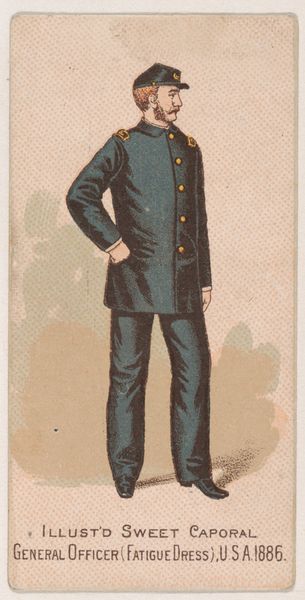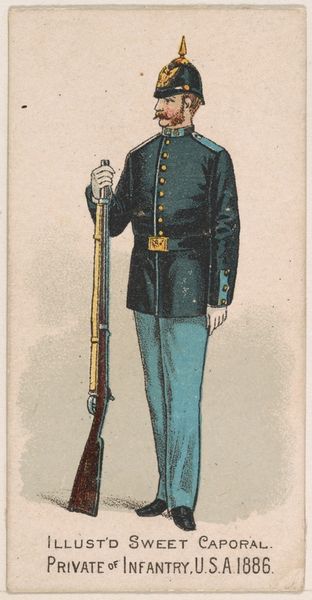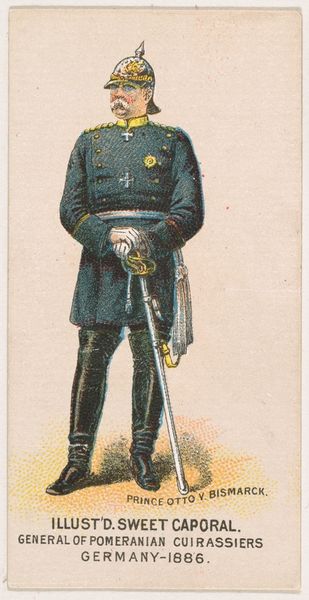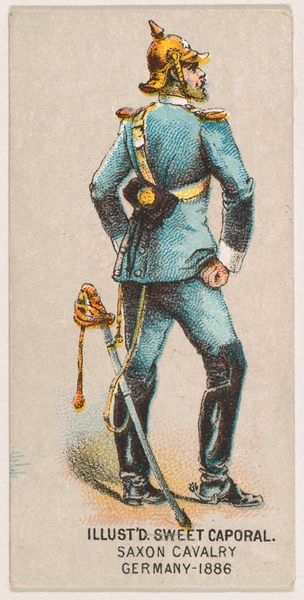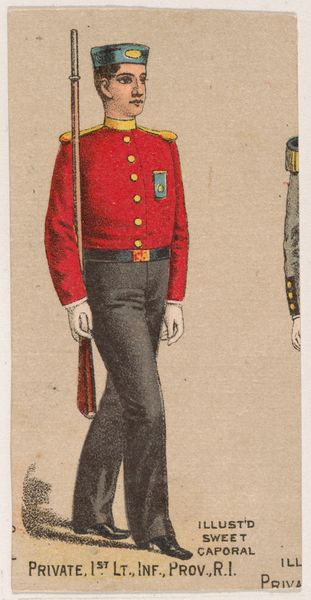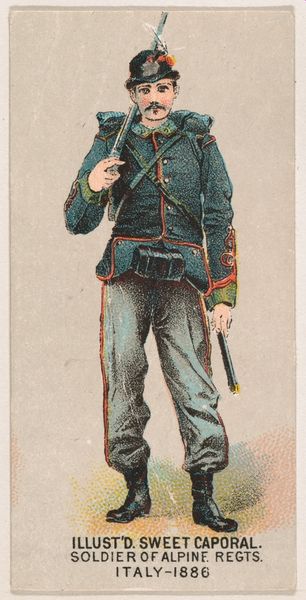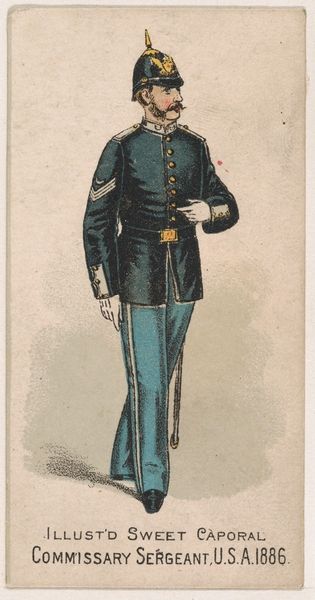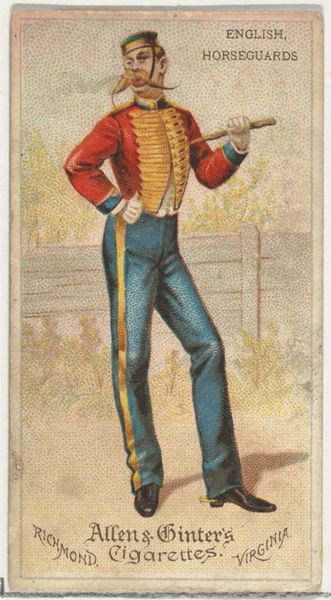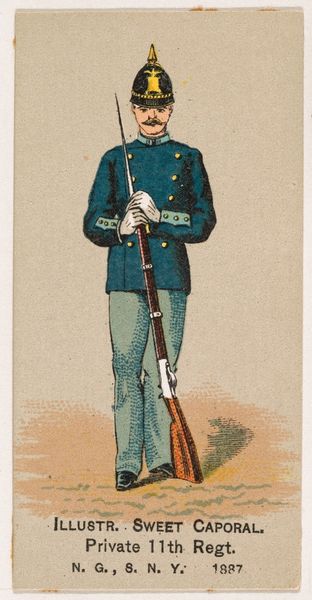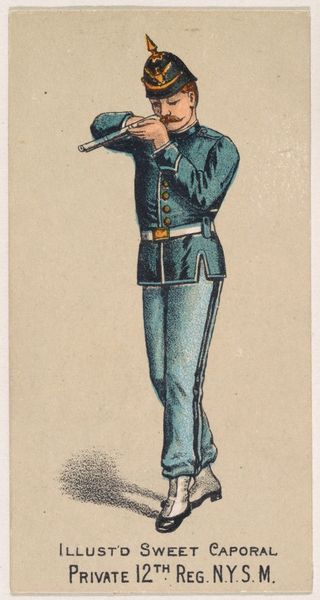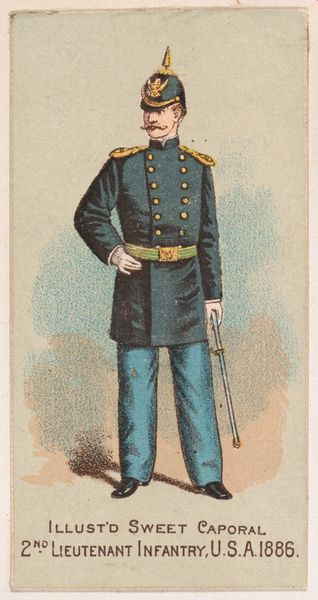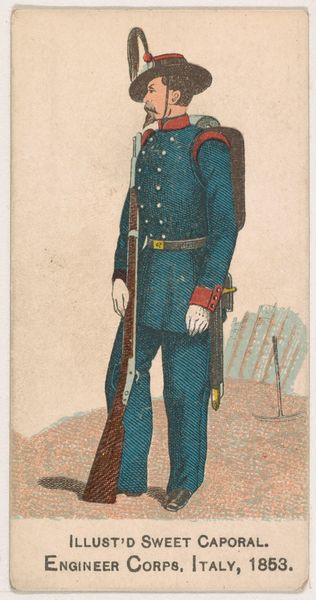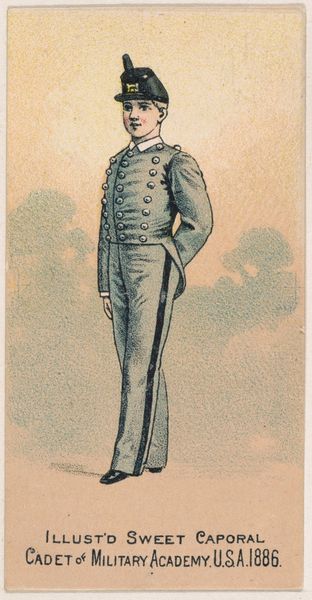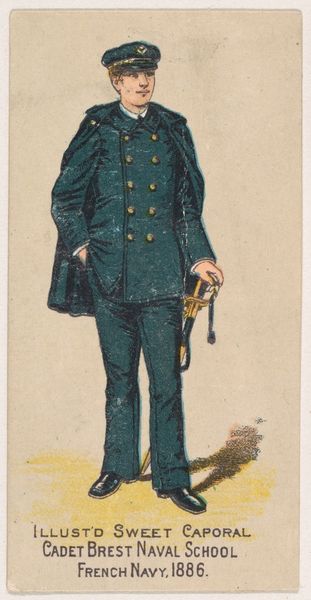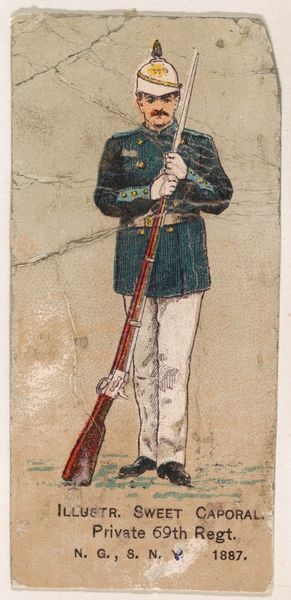
photography, gelatin-silver-print
#
portrait
#
photography
#
framed image
#
gelatin-silver-print
#
muted colour
#
genre-painting
#
realism
Dimensions: height 104 mm, width 62 mm
Copyright: Rijks Museum: Open Domain
Editor: Here we have Gerardus Christiaan Smeekes' gelatin silver print, "Portrait of an Unknown Young Man in Uniform," dating from around 1901-1908. It’s striking how this young man's formal pose is juxtaposed with an almost theatrical backdrop. What elements of this work grab your attention? Curator: The photographic process itself is crucial. Gelatin silver prints, due to their reproducibility, democratized portraiture. Consider the accessibility of this image – who was commissioning portraits at this time? And who had access to it afterwards? Editor: I see, so the medium speaks to broader social changes. Curator: Precisely. This isn't just about representing a young man, but also about the rising middle class and their aspirations. Look at the crisp detail the process affords. It speaks to a shift in how individuals wanted to be seen and remembered. Where was this portrait produced? And what might this signify? Editor: The photo looks like it was taken at a photo studio in Leiden. This may imply a growing sense of civic pride, if one has access to it. But also how portraiture had expanded beyond painting. Curator: Exactly. Consider the economics of image production. Gelatin silver prints, mass-produced, contrast sharply with the singular labor of painted portraits, disrupting traditional notions of artistic value and creating new consumer behaviours. We could ask, who profited from this shift in materiality? Editor: That's a really interesting point, the idea of photographic prints creating its own market through the rise of more affordable photography. Thank you for bringing that to my attention. Curator: Indeed. Examining the means of production, materials and distribution opens this seemingly simple portrait up to larger conversations about class, labor, and the changing landscape of representation itself.
Comments
No comments
Be the first to comment and join the conversation on the ultimate creative platform.
